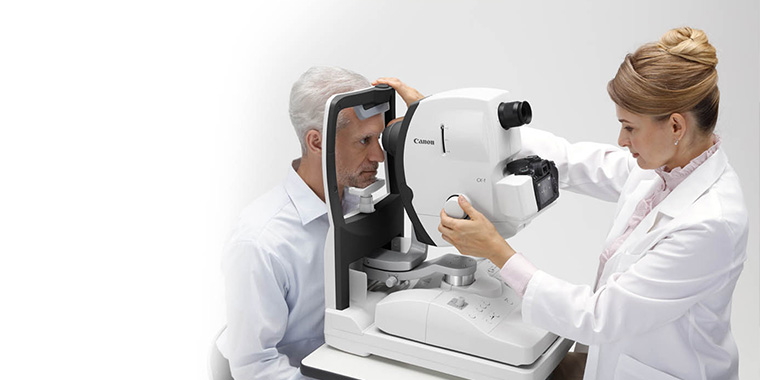Pediatrics in Andalusia: Compassionate Take Care Of Growing Households
Pediatrics in Andalusia: Compassionate Take Care Of Growing Households
Blog Article
Is Refractive Surgery Right for You? Aspects to Take Into Consideration for Better Eyecare
In the realm of eye treatment, the choice to undertake refractive surgical treatment is a weighty one that demands thoughtful factor to consider. As people look for quality and freedom from the restrictions of restorative lenses, numerous elements enter into play when establishing the viability of such a procedure. From the intricacies of one's ocular health to the complexities of individual assumptions and day-to-day behaviors, each aspect holds significance in the broader landscape of refractive surgical treatment candidacy. By examining these crucial elements with treatment and precision, a clearer course in the direction of informed decision-making arises.
Eye Health Evaluation
When considering refractive surgical procedure, a detailed eye health analysis is critical to assess the viability of the procedure for each person. eye center andalusia. This assessment involves a collection of exams and tests conducted by an eye treatment professional to establish the general health of the eyes, the visibility of any type of hidden conditions, and the stability of the refractive mistake
Throughout the evaluation, numerous elements are taken into consideration, such as the individual's medical background, current eye prescription, corneal density, student size, and tear movie top quality. These evaluations help to determine any contraindications to refractive surgical procedure, such as corneal irregularities, cataracts, or untreated eye infections. Furthermore, the evaluation assists to take care of client assumptions concerning the possible outcomes of the surgery based on their special eye features.
Inevitably, the eye health analysis is crucial in ensuring the safety and effectiveness of refractive surgical treatment, as it supplies useful understandings into the individual's eye health condition and assists figure out one of the most ideal therapy alternatives for attaining optimum visual results. (cardiologist andalusia)
Way Of Living Analysis
A detailed way of living evaluation is important in identifying the suitability of refractive surgery for an individual's aesthetic correction demands. Way of life variables such as profession, pastimes, and daily activities play a crucial function in the decision-making process pertaining to refractive surgery. For circumstances, people with occupations that include a high degree of physical task or direct exposure to environmental elements might have different visual needs compared to those with sedentary workdesk tasks. Comprehending how an individual's lifestyle might affect their vision post-surgery is important for taking care of expectations and ensuring optimum outcomes.
Additionally, way of life behaviors such as sports involvement, exterior activities, and even skin care routines can influence the healing process and total success of refractive surgical procedure. People that engage in get in touch with sporting activities might require to take added precautions to secure their eyes during the healing period. Furthermore, people with comprehensive sun direct exposure might call for additional post-operative like prevent problems. By performing a comprehensive way of life analysis, eye treatment professionals can tailor their recommendations and treatment strategies to satisfy the one-of-a-kind requirements of each patient, eventually bring about boosted aesthetic outcomes and complete satisfaction.
Expectation Placement

Individuals require to understand that while many individuals accomplish 20/20 vision or far better adhering to refractive surgery, some might still require glasses for specific tasks like analysis or driving at evening. Managing these expectations aids avoid disappointment and dissatisfaction post-surgery, leading to a much more favorable general experience for the client.
Danger Evaluation

Aspects that may increase the risk of complications consist of age, particular medical problems like autoimmune illness, unpredictable vision prescription, slim corneas, and unrealistic individual assumptions. In addition, selecting a experienced and knowledgeable doctor, following pre and post-operative care directions diligently, and disclosing any type of click site pertinent case history can help reduce threats.
To decrease the likelihood of problems, ophthalmologists carry out detailed pre-operative evaluations to identify any kind of contraindications to surgical treatment. They likewise go over the possible threats and advantages with people throughout the consultation process. By taking part in open communication and shared decision-making, both the ophthalmologist and the client can collaborate to determine if refractive surgery is the best choice based on individual risk accounts and wanted end results.
Appointment Relevance
Taking into consideration the critical duty of educated decision-making in examining dangers and prospective problems in refractive surgical treatment, the assessment process holds significant relevance in leading people towards optimal outcomes. Throughout the appointment, the eye doctor examines the patient's eye health and wellness, refractive errors, and general viability for surgical treatment. This initial assessment is crucial in establishing one of the most suitable treatment for every individual, considering elements such as corneal thickness, student size, and existing eye problems.
Furthermore, the consultation page acts as an opportunity for people to discuss their assumptions, issues, and any kind of concerns they may have relating to the surgery. Clear interaction between the doctor and the client is necessary to make sure realistic assumptions and a comprehensive understanding of the possible risks and benefits entailed.
Additionally, the examination permits the doctor to explain the various medical options offered, their corresponding outcomes, and the post-operative care needed. This comprehensive discussion equips people to make well-informed decisions regarding their eye treatment, leading to better fulfillment and results post-surgery.
Final Thought
In verdict, individuals considering refractive surgical treatment must undertake a comprehensive eye health assessment, examine their way of living behaviors, straighten their expectations with potential outcomes, evaluate the connected dangers, and focus on examinations with eye treatment specialists. These variables play an essential role in identifying the suitability of refractive surgical treatment for every individual, making sure ideal results and fulfillment with the treatment.
Individuals thinking about refractive surgical treatment typically have high expectations concerning the outcomes, expecting excellent vision without the demand for glasses or get in touch with lenses. While refractive surgical treatment can significantly improve vision and reduce dependence on aesthetic aids, it is important for clients to understand that results might vary based on individual elements such as the level of refractive mistake, corneal thickness, and overall eye wellness.
By involving in open communication and shared decision-making, both the ophthalmologist and the patient can function together to determine if refractive surgery is the appropriate option based on individual threat profiles and wanted results.
Considering the critical function of notified decision-making in assessing threats and prospective complications in refractive surgical procedure, the assessment procedure holds significant relevance in guiding patients towards optimum outcomes. Throughout the consultation, the eye doctor evaluates the individual's eye wellness, refractive errors, and total suitability for surgical treatment.
Report this page